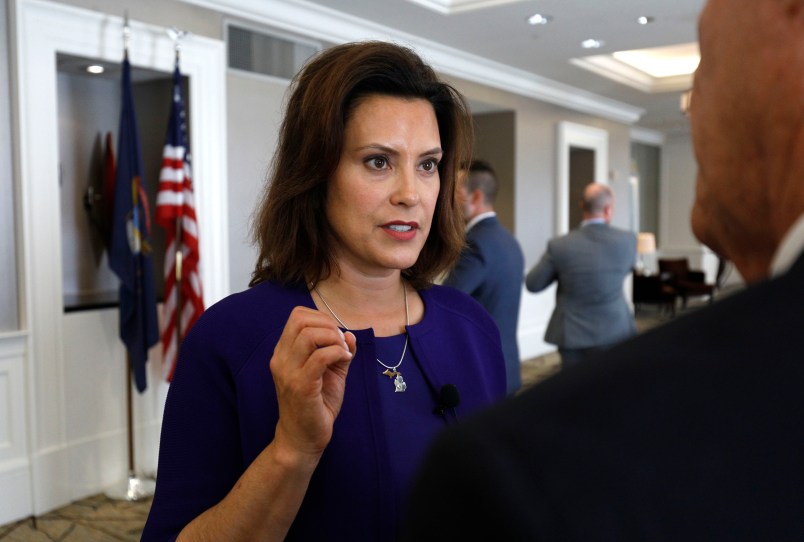Chief executives from top Michigan-based corporations preemptively pushed back on a package of proposed changes to election law that will likely restrict voting access in Michigan and are set to be considered by the GOP-led state Senate this week.
A group of more than 3o companies, including General Motors, Ford, Blue Cross Blue Shield, and Quicken Loans, issued a joint statement on Tuesday.
Last month, where corporations based in Georgia fumbled an effort to push back on restrictive voting legislation before it was signed into law, drawing public criticism. In an apparent effort to avoid a repeat, the Michigan companies on Tuesday warned against changes in the state’s election laws, stating that the “government must avoid actions that reduce participation in elections — particularly among historically disenfranchised communities, persons with disabilities, older adults, racial minorities and low-income voters.’’
Election laws “must be developed in a bipartisan fashion to preserve public confidence,” the executives added.
Many of the companies on the list have been generous in their support for Republicans in the past. Just a few years ago, Ford, General Motors, and Quicken Loans were all major donors to President Trump’s 2017 inauguration fund.
The development follows a move by the Republican-led legislature, egged on by former President Donald Trump’s “Big Lie” about election fraud in the 2020 presidential election, to introduced of a flurry of laws that would restrict access to voting in the battleground state.
The proposed changes would impose new obstacles to absentee voting, after Trump and Michigan Republicans last year put forward false claims about election fraud in the battleground state and waged a particularly forceful effort that targeted the majority-Black city of Detroit.
“Members of this chamber are continuing to push a false narrative. It started as the Big Lie, from the big sore loser,” said state Sen. Rosemary Bayer (D) on Tuesday. “They’re wanting to set us back, making it harder to vote, creating deliberative barriers, for Black, for young, for older, and new Americans.”
Republicans in the state Senate last month had introduced a package of 39 bills to change the state’s voting laws. While Republicans argue that the bills expand voting access by adding an extra day of early voting on a Saturday and allowing 16-year-olds to preregister to vote, the bills also would prohibit the secretary of state from mailing unsolicited applications for absentee ballots to voters. Among other rule changes, the bills would require voters to mail in a photocopied or scanned ID to receive an absentee ballot, and limit absentee ballot drop boxes.
While Michigan Gov. Gretchen Whitmer (D) said at the time that she would veto any bill that sought to impose new restrictions on access to the ballot box, Michigan’s Constitution makes it possible for Republicans to circumvent the veto — meaning that the legislation still stands a chance of being codified into law.
Michigan is one of a handful of states that in a rarely used procedure allow voters — with certain restrictions — to petition lawmakers to take up a piece of legislation that if passed is not subject to a governor’s veto.
Michigan GOP Chair Ron Weiser, who recently called top Democrats in the state “witches,” said late last month in a video reported by The Detroit News, that if the legislation isn’t passed, that Republicans in the state “have other plans to make sure that it becomes law before 2022.”
“That plan includes taking that legislation and getting the signatures necessary for a legislative initiative so it can become law without Gretchen Whitmer’s signature,” Weiser said.



